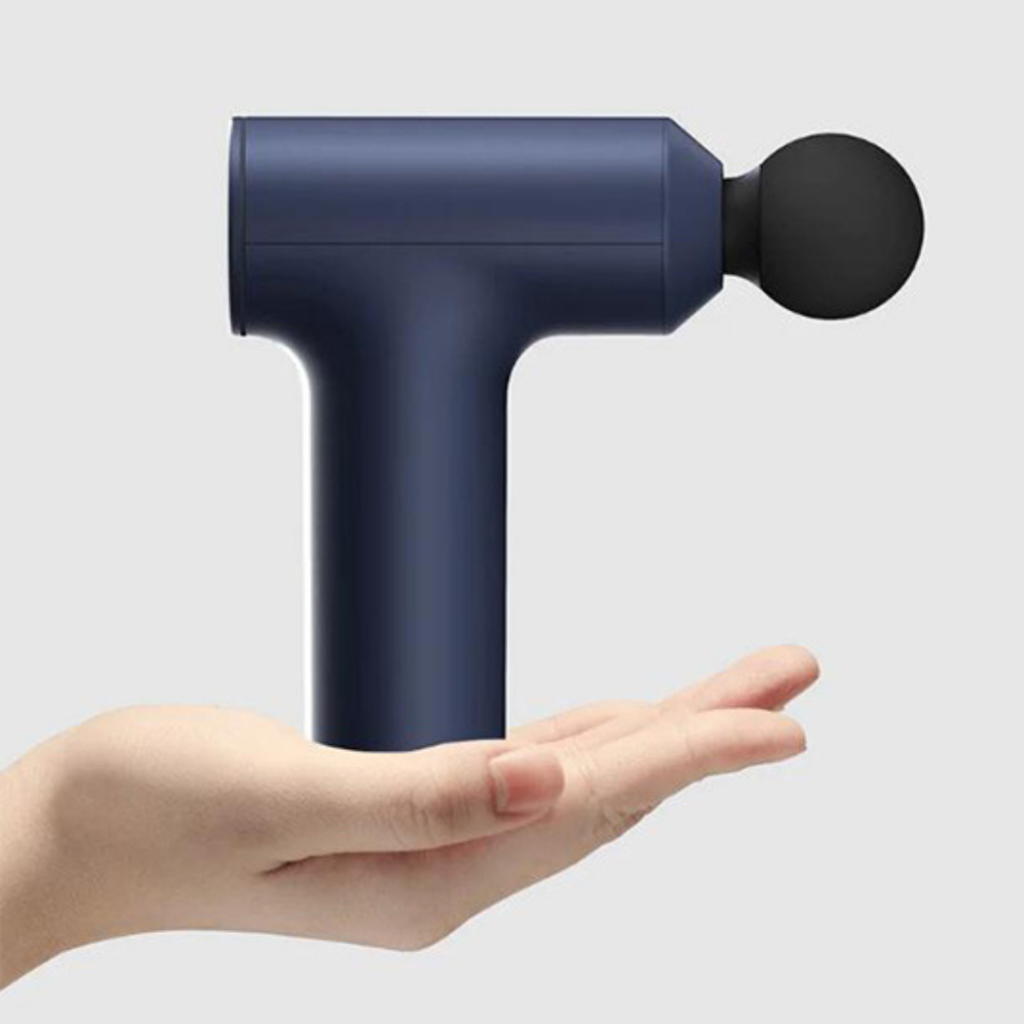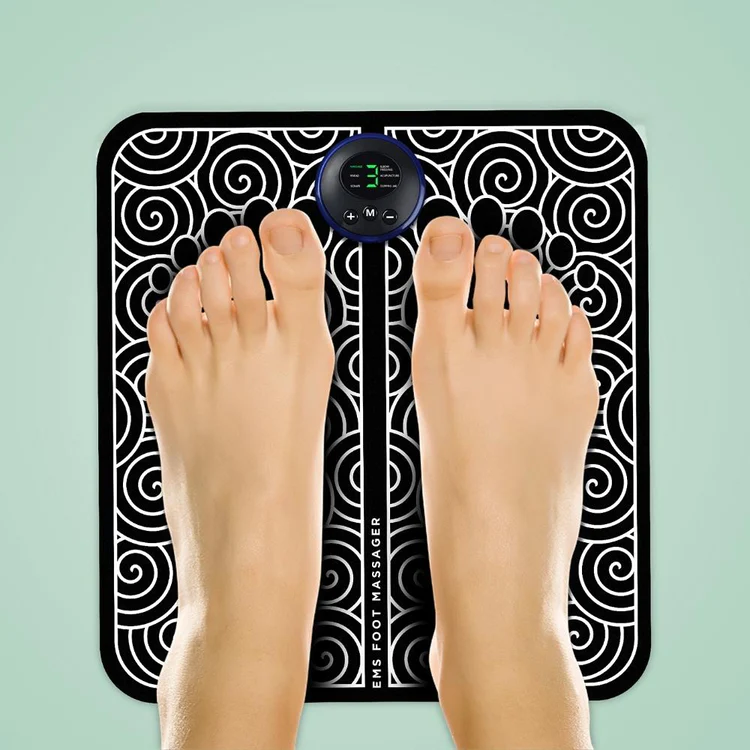1. Introduction
Ready or not, menopause will happen to each and every woman. It is a natural occurrence, as natural as menstruation on the first day of teenage life. However, what is strikingly unnatural and difficult to accept are all the physical and mental changes the body will go through in such a short period of time, particularly menopause weight gain.
In today's modern society, thinness has become a standard of beauty and a common pursuit in many women's lives. But what is the real impact on weight gain during menopause, and what could every woman do to fight against that? This article aims to answer such questions.
2. Understand the Role of Hormonal Changes

It is important to understand how the hormonal changes that accompany menopause can lead to weight gain. As people age, their metabolism slows down naturally, and this is because of decreasing levels of hormones such as estrogen, progesterone, and testosterone. Estrogen plays a big role in numerous body functions, such as the metabolism of cholesterol, carbohydrates, and body fat. This hormone also helps to regulate body weight and body fat, and low levels of estrogen after menopause are believed to increase the risk of developing metabolic syndrome. Metabolic syndrome is a group of health problems that can include too much fat around the waist, elevated blood pressure, high blood sugar, high triglycerides, and high cholesterol.
In addition, insulin resistance occurs when the cells do not use insulin efficiently to help maintain normal blood glucose levels, which can lead to the development of type 2 diabetes. On the other hand, the hormone testosterone helps to build and maintain muscle mass, as well as keeping the metabolism rate and the ability to burn fat at an optimal level. When testosterone levels decrease, the body will start to convert calories into fat more easily, leading to weight gain. Later in life, however, the ovaries decrease the production of testosterone more than they do for estrogen, and this adds to the probability of developing insulin resistance and abdominal obesity.
As for progesterone, it is a natural diuretic, meaning that it helps to prevent water retention and bloating. Low levels of this hormone cause bloating and water retention, resulting in weight gain, particularly in the abdominal region. Moreover, the decrease in the hormone can trigger night sweats and disturb sleep, which then leads to overeating during the day out of tiredness. Regardless of the hormonal changes, as people age, their muscle mass decreases as a result of reduced physical activity, which leads to a decrease in their basal metabolic rate. Basal metabolic rate is the amount of energy used while the body is at rest, and it accounts for approximately 60 to 75 percent of the calories used each day.
When muscle mass is reduced, this rate will also decrease, thereby slowing down the burning of calories. So, unless the calorie intake is reduced, weight gain will occur. All these reasons show that hormonal changes contribute to menopause weight gain. Therefore, it is important to prevent menopause weight gain to reduce the risks of developing chronic diseases and to maintain and improve the quality of life. By understanding the logic behind hormonal weight gain, it will help people appreciate the significance of the strategies to prevent it. Such strategies may include eating healthily, staying physically active, and employing a positive outlook on life.
Key Points
- Hormonal changes during menopause can lead to weight gain
- Decreasing levels of estrogen, progesterone, and testosterone affect metabolism
- Low estrogen levels after menopause increase risk of metabolic syndrome
- Insulin resistance and decreased testosterone levels can lead to weight gain
- Decreased progesterone levels cause water retention and bloating
- Reduced muscle mass with age decreases basal metabolic rate
3. Fuel Your Body with a Balanced and Nutrient-Dense Eating Plan

Reality about menopause weight Gain
Many women find that they gain weight during the menopause transition, even if they have never had a weight problem. This is because the body's requirement for energy reduces with the metabolic rate, which in turn decreases. The reduction in estrogen levels, which help regulate metabolism and body weight, is also a factor. Though all these factors are beyond our control, lifestyle factors can have a major influence on body weight and fat distribution. Making small changes to food choices and eating habits now can help to avoid gaining excessive weight and can set a pattern for a healthier lifestyle into the postmenopause years.
Practical Tips for Preventing Menopause Weight Gain
Here is what you need to do to prevent menopause weight gain. Firstly, you should reduce the amount of fat in your meals. This is easy to do if you remember a few simple rules. For instance, avoid frying foods in oil, use a small amount of vegetable oil or a low-fat spread for sautéing in a non-stick pan, and use low-fat spread on bread instead of butter.
You can also trim the fat off meat and remove the skin from chicken. Try also to buy lean cuts of meat and choose lower fat options when eating out. Also, include plenty of fruit and vegetables in your diet, and try to eat at least five portions a day. Fruit and vegetables are usually low in calories and fat and high in fiber—three essential ingredients for successful weight loss. They also contain plenty of vitamins and minerals.
Try to set time aside for regular meals. It has been proven that people who eat at least three meals a day, including breakfast, are more successful in controlling their weight. Also, try to plan ahead and make a shopping list. This will assist you in preventing impulse purchases of food, especially if discounts and special offers tempt you.
Last but not least, please monitor your intake of food by reading food labels and being aware of the fat and calorie content of what you eat. Alcohol and carbonated drinks are very high in calories and should be consumed in moderation. Also, take care with high-fat, high-sugar toppings such as cream, chocolate, and full-fat ice cream, as these can all contribute a significant amount of fat and calories to a meal.
Key Points
- Making small changes to food choices and eating habits can help prevent excessive menopause weight gain
- Reduce fat in meals by avoiding frying, using low-fat spreads, and choosing lean cuts of meat
- Include plenty of fruits and vegetables in the diet for weight loss
- Set aside time for regular meals, plan ahead, and make a shopping list to prevent impulse purchases
- Monitor food intake by reading labels and being aware of fat and calorie content
- Consume alcohol and carbonated drinks in moderation, and be cautious with high-fat and high-sugar toppings
4. Avoid Emotional Eating

Strategies for Stress Management Without Resorting to Food
It is important to find other ways to support our well-being and relieve stress. There are many strategies to reduce stress and anxiety without resorting to food or drink. It is about finding alternative ways to feed our feelings and re-focus on our goals. Engaging in activities that you enjoy and that give you a sense of purpose will also help. That could be anything from a hobby that you enjoy to volunteering in your community. Some people find that going for a walk or doing some kind of exercise helps to improve their mood. Exercise helps the brain release endorphins, which are chemicals that improve your mood. Also, they may help distract us from our cravings.
Another strategy is to learn to tolerate a certain level of stress and to be able to problem-solve when we start to feel tense. Stress is a part of life, and we should try to learn how to manage it and how to use it as a signal that we need to make a change. There is a practice called mindfulness that can be helpful.
Mindfulness and Other Techniques for Coping with Emotional Eating
Mindfulness is about reflecting on and becoming aware of your own thoughts and feelings in the present moment. The National Institute of Health and Care Excellence (NICE) recommends it as an effective method for treating depression because it is evidence-based. It involves putting all of your attention on the present moment and observing your thoughts and feelings as they happen. It may also be helpful to keep a journal and to monitor your hunger and fullness. This can help you see whether you are engaging in emotional eating and whether your food intake matches your body's needs. Identifying your food cravings and the situations that trigger them is also a good way to start finding alternatives to eating for emotional support.
Substituting eating with activities such as talking to a friend, writing, or doing a puzzle can give us a chance to find out what emotions we are really feeling. This awareness then means that we can start to work on tackling the root cause of our emotions in a more healthy way. Also, talking to your GP can be a good first step in seeking help. Many areas have free counseling and support services, and your doctor can help you find what is available in your area.
Key Points
- Find alternative ways to support well-being and relieve stress
- Engage in activities that bring joy and purpose
- Exercise can help improve mood and distract from cravings
- Learn to tolerate and manage stress; use it as a signal for change
- Practice mindfulness to become aware of thoughts and feelings
- Seek help from a GP or counseling services if needed
5. Regular Exercise for Weight Management

These are only a few examples of potentially ineffective dieting regimes, and hopefully the above snippet has shown my readers that diet isn't the answer to prevent menopause weight gain. Although eating healthily is important and will certainly prevent further weight gain, the correct way to combat it is to add exercise to your daily routine.
Our muscle mass begins to decrease at the age of 30. Resting metabolic rate accounts for around 60–75% of all the calories you burn every day, and 25% of that energy is used for moving your muscles. By utilizing our muscles through exercise and strength training, we can have a better chance of lowering the effects of our slowing metabolisms! But if strength training really isn't for you and you just can't see yourself lifting a barbell in the gym in front of all the other gymgoers, there are other techniques you can use to slowly integrate exercise into your life. For example, engaging in walking meetings at work to get the legs moving and the blood flowing, or de-stressing through a yoga or Pilates class. By having a more enjoyable approach to exercise, hopefully the motivation to maintain a daily exercise routine will be more attainable. So what I'll say to my readers is to forget dieting and try a more proactive and long-lasting method of controlling weight and keeping in shape: exercise.
6. Stay Hydrated

Hydration: A Key Factor in Menopause Management and Weight Loss
Drinking water is known to support weight loss, but staying hydrated can also have numerous other health benefits during menopause. It can help to reduce bloating, as when you're dehydrated, your body will try to hold on to as much water as possible, leading to bloating.
Staying hydrated helps to prevent water retention and even fluid-related weight gain. Drinking water can also help to prevent constipation, which can also be a common symptom during menopause. Dehydration can slow the body's functions, one of which is the removal of waste, which can result in constipation. Staying hydrated can also help reduce hot flushes and headaches. Some researchers believe that hot flushes are related to a series of complex body processes, one of which is the narrowing of blood vessels.
A possible theory for the cause of hot flushes during menopause is that when the body is dehydrated, the narrowing of the blood vessels occurs more than it would when the body is hydrated. So, drinking water and keeping the body hydrated can help prevent hot flushes.
Beyond Weight Loss: The Broad Health Benefits of Hydration
Headaches, both migraines and tension-type headaches, are commonly associated with dehydration. In fact, according to the NHS, the first sign of dehydration is often a headache. You can help prevent headaches by drinking plenty of water every day. As well as this, staying hydrated can also help to maintain concentration and energy levels. So, again, according to the NHS, for example, water is needed in the processes that keep our muscles and nerves functioning.
When the body becomes dehydrated, these processes have to slow down, and this can cause muscle fatigue. In addition, it is often easy to mistake the signs of dehydration, such as tiredness or cravings. So, by staying hydrated all day, you can not only avoid these signs, but you can also be sure that by refueling your body with perfect hydration, you are improving its normal functions and making yourself healthier, thereby avoiding menopause weight gain.
Key Points
- Drinking water can support weight loss and has numerous health benefits during menopause
- Staying hydrated can reduce bloating, prevent water retention, fluid-related weight gain, and constipation
- Hydration can help reduce hot flushes and headaches during menopause
- Drinking plenty of water can help maintain concentration, energy levels, and overall health during menopause
7. Get Enough Sleep

Adults need about 7 to 8 hours of sleep each night. Rather, sleep not only provides us with the rest we need but also helps us to control our body weight. We may not notice it, but lack of sleep can make us feel more hungry. This is because it leads to an increase in a hormone that's responsible for making us feel hungry, which is 'ghrelin'. And it also decreases a hormone that's associated with making us feel full, which is 'leptin', so as a result, we'll end up wanting to eat more than we usually need and, as a consequence, menopause weight gain.
Due to this, it is more likely to lead to a greater intake of food, especially foods that are high in fat and sugar. When we're extremely tired, our brain's reward centre lights up at the sight of food, particularly junk food, and this can override the rational part of our brain that's telling us not to eat it. This could help to explain why some people might find it harder to get back on track with healthy eating after a couple of poorly slept nights.
Additionally, the brain uses about 35% less energy while we sleep, especially for sending messages around the body. These changes are believed to help get rid of harmful waste that has built up during the day while we are awake. Therefore, a good sleep pattern allows our body time to carry out these maintenance processes and also helps assist with keeping our immune system in good working order. Lastly, the body's automatic functions rely on different types of sleep, some of which are important for refreshing and rebalancing our systems, like the 'deep' sleep that's experienced in the first half of the night, and some of which are important for keeping us alert and awake, like the rapid eye movement (REM) sleep that's experienced in the second half of the night. So if our sleep is frequently disturbed, it may be that we are depriving our body of the valuable preparation for the day ahead that occurs in the second half of the night.
Key Points
- Adults need 7 to 8 hours of sleep each night for rest and weight control
- Lack of sleep can increase hunger hormone ghrelin and decrease fullness hormone leptin
- Lack of sleep may lead to greater intake of high-fat and high-sugar foods
- Brain uses 35% less energy while sleeping to get rid of harmful waste
- Good sleep pattern helps maintain immune system and body's automatic functions
- Different types of sleep are important for refreshing and rebalancing body's systems
- Frequent sleep disturbances may deprive body of valuable preparation for the day ahead
8. Deal with stress by practicing mindfulness and relaxation
Mindfulness and Relaxation Techniques for Stress Management
Hormonal changes and other factors can lead to increased stress and anxiety during menopause. Chronic stress can cause overeating and weight gain. The stress hormone cortisol, when chronically elevated, leads to the accumulation of fat, especially around the abdomen.
There are many strategies to help manage stress, but mindfulness and relaxation techniques have been shown to have a big impact when practiced regularly. Mindfulness refers to the practice of staying present in the moment and developing an awareness of one's thoughts and feelings. Mindfulness can be cultivated through mindfulness meditation, in which you sit quietly and focus on your natural breathing or on a word or "mantra."
Studies have shown that regular meditation practice can reduce anxiety and improve sleep. There are many resources available to help you get started with mindfulness meditation. Many websites offer guided meditations as well as group workshops, if you prefer instructor-led sessions. Some people find it helpful to attend an "introduction to meditation" workshop or a series of classes so that they can learn the basics of mindfulness and the principles of meditation in a group setting.
Other great ways to practice mindfulness include tai chi and yoga, both of which have their roots in ancient practices and have been found to be beneficial for stress relief. Relaxation is a state in which the body is not in an 'active' state and the mind is typically quiet. Relaxation can be more long-term and can involve cultivating an environment of peacefulness and 'quiet' practices such as reading or spending time in nature.
Implementing Healthy Lifestyle Changes for Weight Management
There are also 'active' relaxation techniques, such as progressive muscle relaxation, in which you consciously relax each muscle group in your body in sequence. This allows you to feel physical relaxation and can help reduce psychological tension. Like mindfulness, relaxation has been shown to improve sleep and reduce the experience of anxiety. Not only do these practices help to prevent menopause weight gain, but they also increase a person's ability to cope with stress and may contribute to successful long-term weight maintenance.
Be kind to yourself and recognize that choosing a healthy lifestyle is a positive and proactive step. Remember to practice mindful eating when dining; try to eat slowly and savor each bite of your meal. This can help to calm your mind and bring awareness to your body's natural signals of hunger and fullness.
Key Points
- Hormonal changes during menopause can cause increased stress and anxiety, leading to overeating and weight gain
- Mindfulness and relaxation techniques, such as meditation, tai chi, and yoga, can help manage stress and anxiety
- Mindful eating can also help with weight management during menopause
- Being kind to yourself and choosing a healthy lifestyle is important for overall well-being









